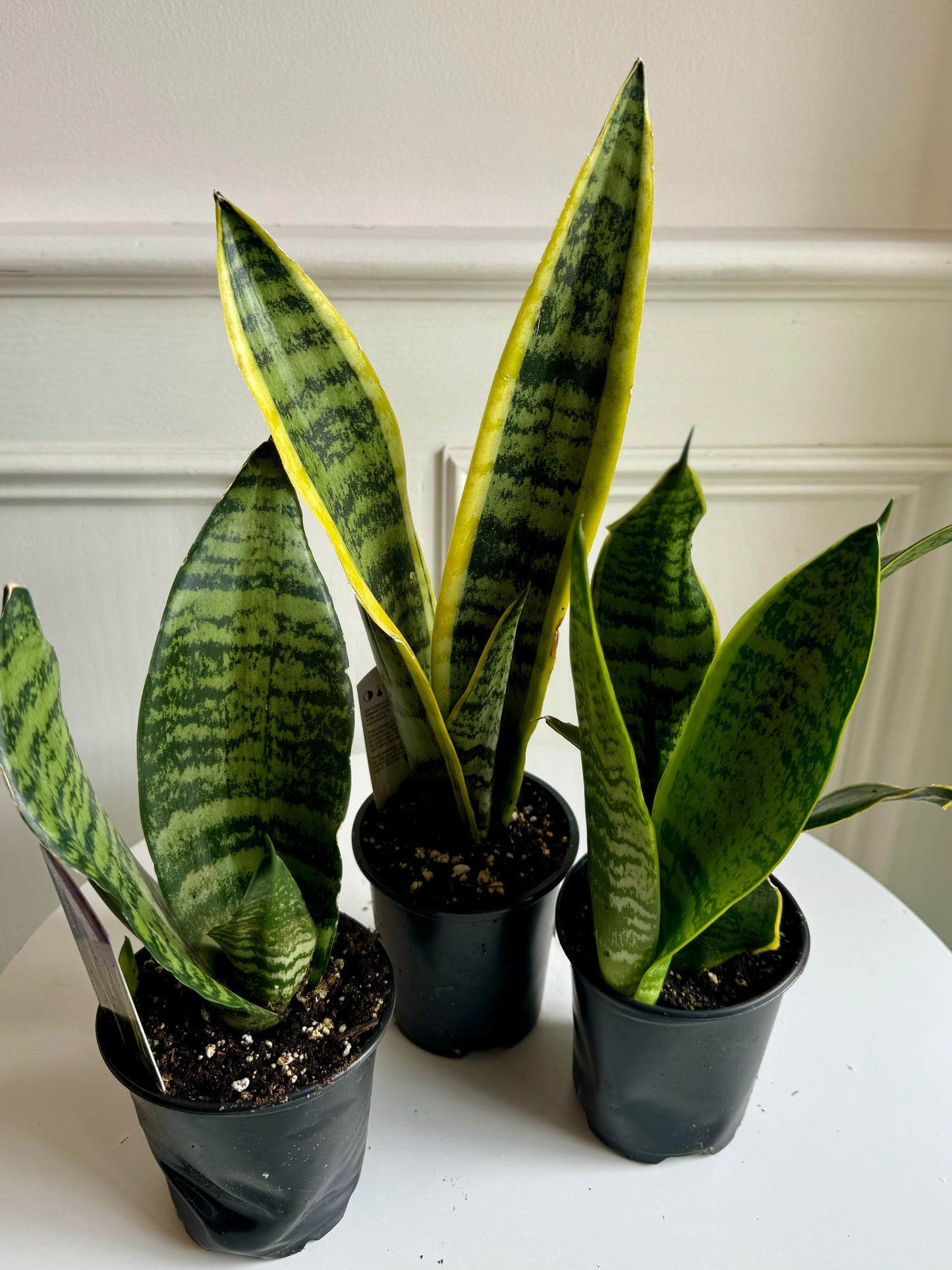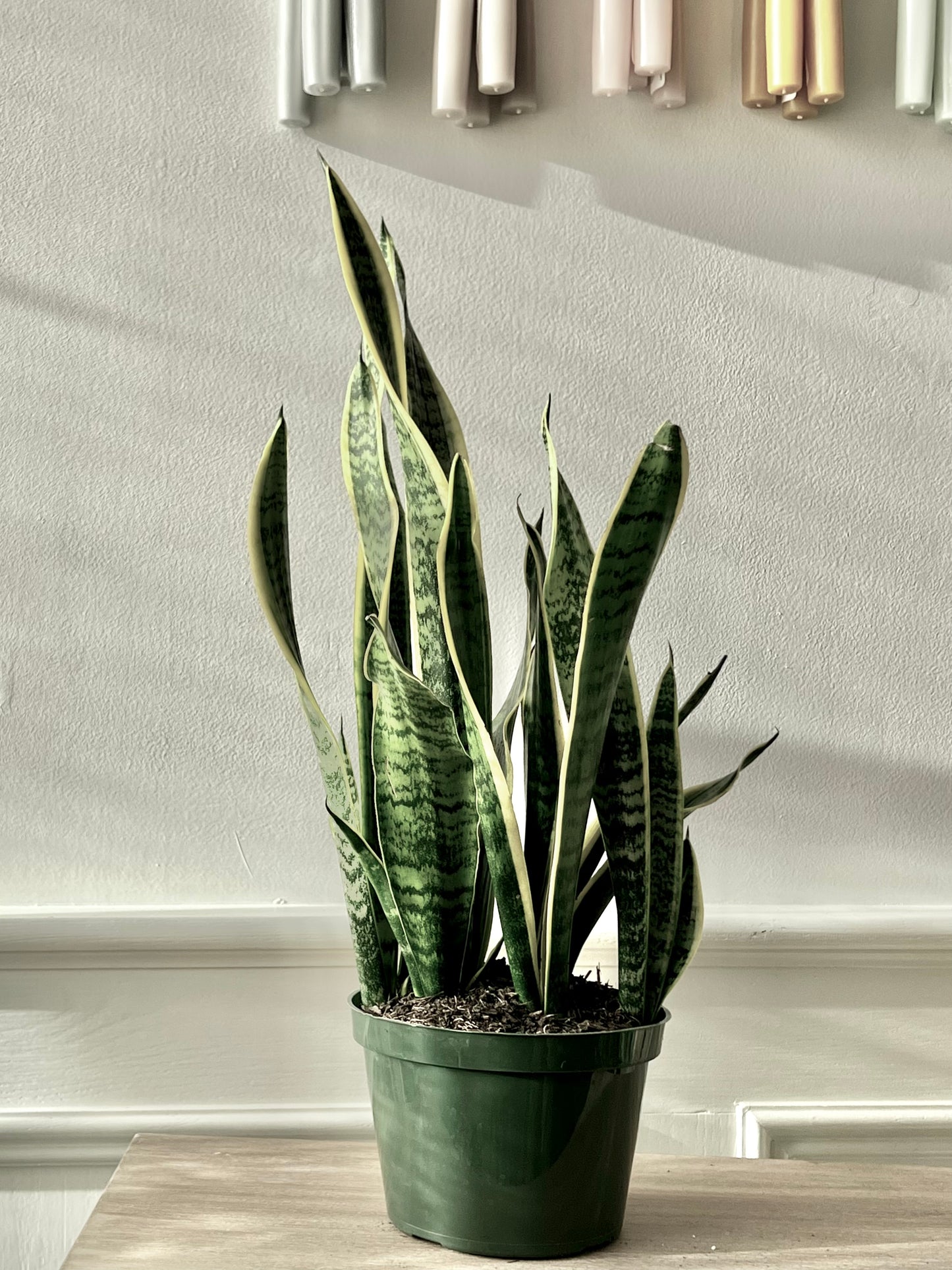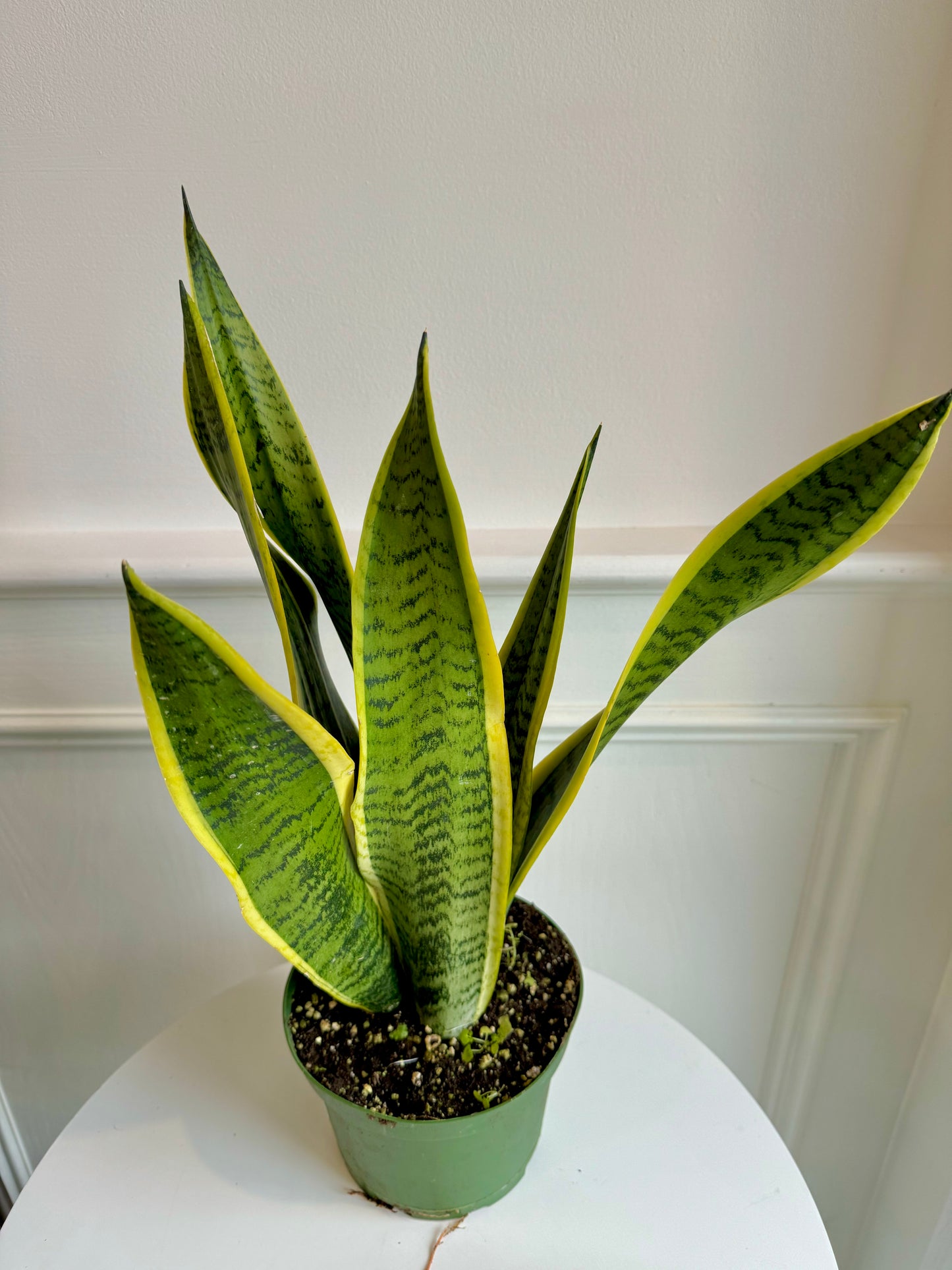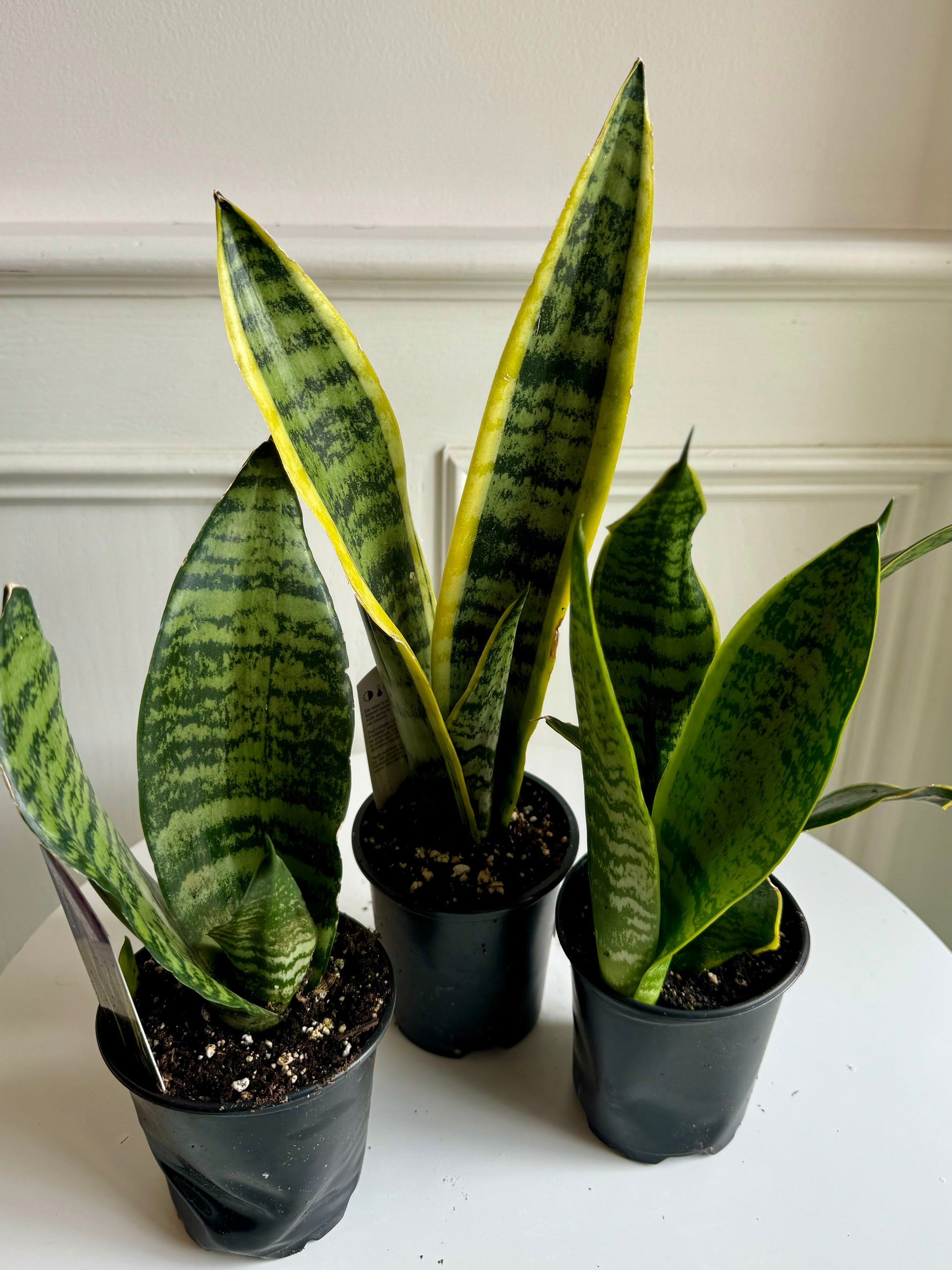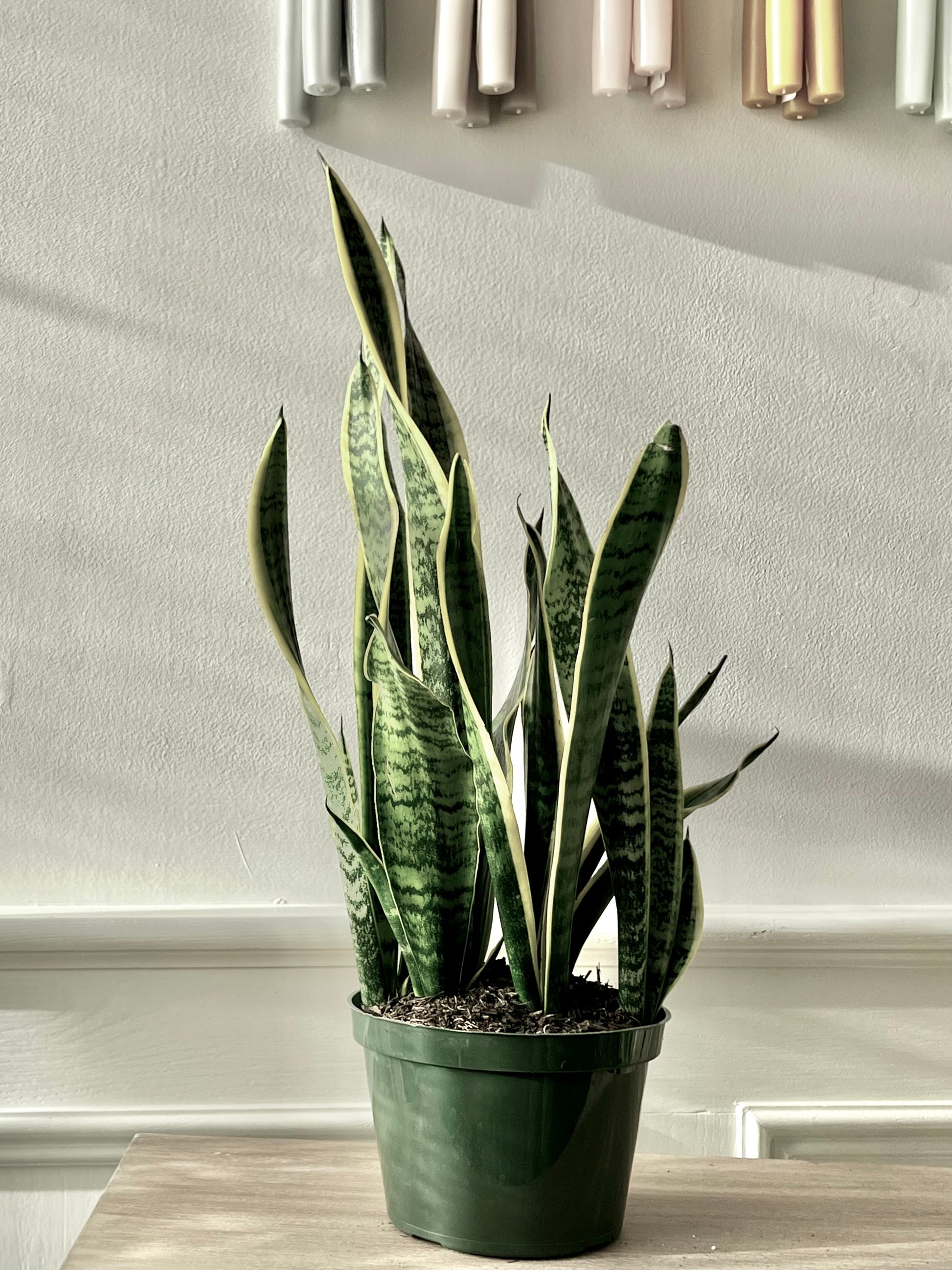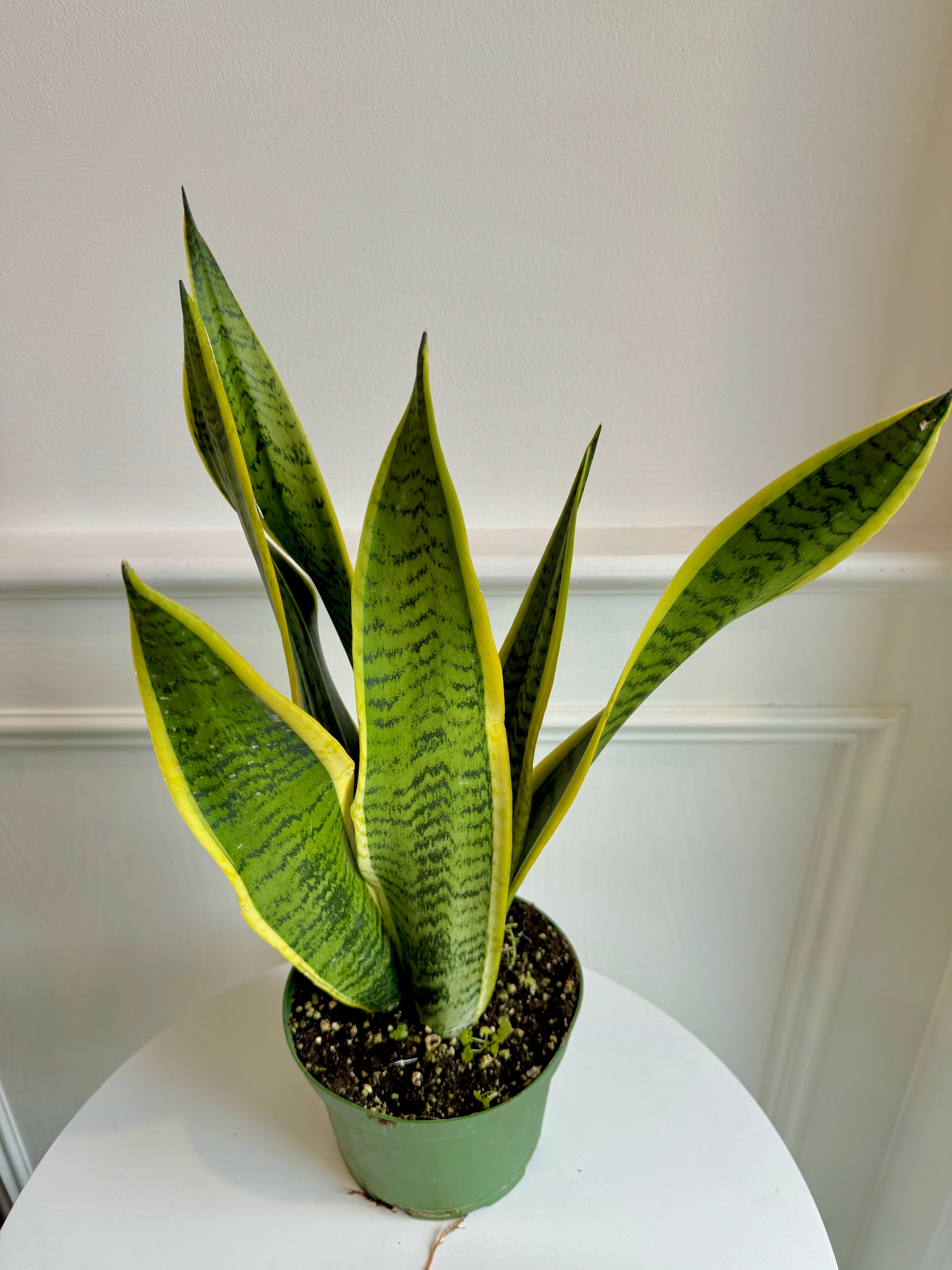Snake Plant
Snake Plant
Couldn't load pickup availability
Snake plants, also known as Sansevieria or Mother-in-Law's Tongue, are popular and easy-to-care-for houseplants known for their striking appearance and air-purifying qualities. Here's some information about snake plants:
Appearance: Snake plants are characterized by their upright, sword-shaped leaves that grow in a rosette pattern. The leaves are typically stiff, thick, and pointed, with variegated patterns of green, yellow, or silver. Some varieties have solid-colored leaves, while others feature intricate striping or mottling.
Growth Habit: Snake plants have a slow to moderate growth rate and can reach varying heights depending on the variety. Some species remain relatively compact, growing to around 1 to 2 feet tall, while others can grow much taller, reaching heights of up to 6 feet or more. The leaves grow vertically from a central rhizomatous root system, creating a striking architectural appearance.
Native Habitat: Snake plants are native to tropical regions of West Africa, where they grow in a variety of habitats, including forests, savannas, and rocky outcrops. They are well-adapted to survive in low-light conditions and are often found growing under the canopy of larger plants.
Care Requirements: Snake plants are incredibly low-maintenance and adaptable, making them ideal for beginner and experienced plant enthusiasts alike. They thrive in a wide range of light conditions, from bright, indirect light to low light. Snake plants are drought-tolerant and prefer to dry out between waterings, making them suitable for forgetful or busy plant owners. They prefer average room temperatures and can tolerate fluctuations in temperature and humidity.
Air Purification: Snake plants are renowned for their air-purifying qualities. They are particularly effective at removing toxins such as formaldehyde, benzene, xylene, and trichloroethylene from the air, making them an excellent choice for improving indoor air quality.
Propagation: Snake plants can be propagated through division or leaf cuttings. Dividing the plant involves separating the rhizomes and replanting them in separate pots. Leaf cuttings can be taken from mature plants and rooted in water or directly in potting soil.
Pet-Friendly: Snake plants are considered mildly toxic to pets if ingested. The plant contains saponins, which can cause gastrointestinal upset in cats and dogs if consumed in large quantities. Therefore, it's essential to keep snake plants out of reach of pets and monitor them closely around the plants.
Overall, snake plants are versatile, resilient, and visually striking houseplants that can thrive in a variety of indoor environments. With their unique appearance and air-purifying qualities, they make a fantastic addition to any indoor plant collection.
Share
